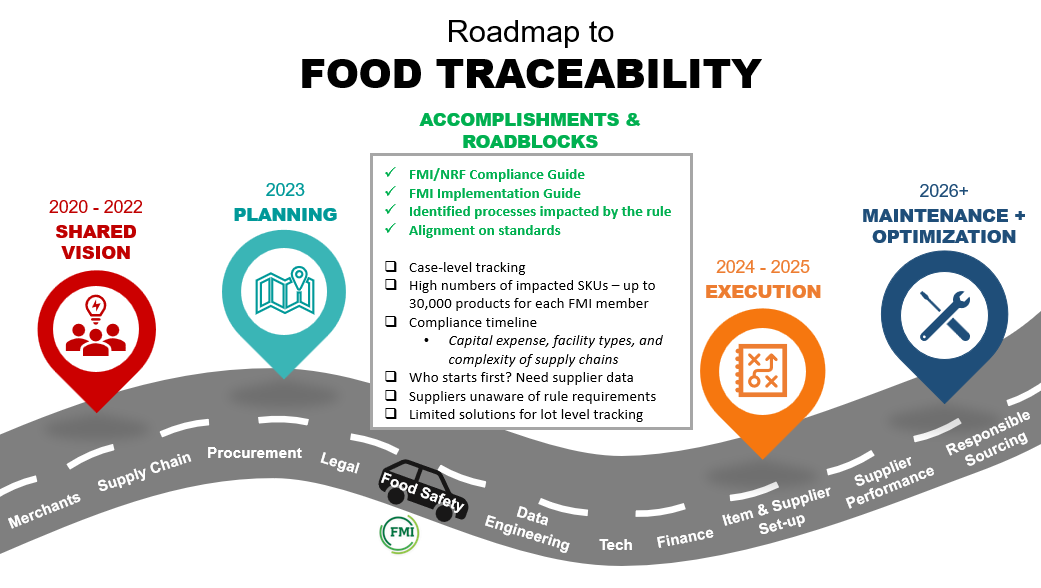By: Elissa McLerran, Public Policy Communications Manager
 Grocers play an important role in the efficient delivery of safe, affordable food for all customers. One vehicle used in this delivery is the Supplemental Nutrition Assistance Program (SNAP). The U.S. House of Representatives Agriculture Committee held a hearing on the pros and cons of restricting SNAP food choice. FMI’s President and CEO Leslie Sarasin served as a witness for the hearing and shared the food retailer perspective on the complexity and importance of SNAP. Much of the conversation focused on the challenges with implementing restrictions and the benefits of incentives and education.
Grocers play an important role in the efficient delivery of safe, affordable food for all customers. One vehicle used in this delivery is the Supplemental Nutrition Assistance Program (SNAP). The U.S. House of Representatives Agriculture Committee held a hearing on the pros and cons of restricting SNAP food choice. FMI’s President and CEO Leslie Sarasin served as a witness for the hearing and shared the food retailer perspective on the complexity and importance of SNAP. Much of the conversation focused on the challenges with implementing restrictions and the benefits of incentives and education.
Joining FMI on the panel, witnesses from Brookings Institution, The Food Trust, and Cornell University’s Food and Brand Lab discussed the added complexity and costs that restrictions would bring and the lack of data to support that the restriction would improve public health. Sarasin shared current nutrition education efforts that FMI member companies are engaged in, such as having registered dietitians and nutritionists in stores to help customers choose healthy options and National Family Meals Month®, the FMI Foundation’s initiative to increase the number of meals eaten by families at home.
Sarasin also highlighted the need for sound public policy as changes to the program are considered and implemented. FMI and member companies will continue to be an active and engaged partner in this endeavor of finding the best programmatic solution to achieve the Agriculture Committee’s goals.
In his closing remarks, Chairman Mike Conaway (R-TX) said that while this is likely not the last conversation on the topic, it is important to recognize that there is no silver bullet to address obesity, but he hopes that all of the SNAP and nutrition discussions will help all of the country make healthier decisions.
To view Sarasin’s full testimony, click here.


 Industry Topics address your specific area of expertise with resources, reports, events and more.
Industry Topics address your specific area of expertise with resources, reports, events and more.
 Our Research covers consumer behavior and retail operation benchmarks so you can make informed business decisions.
Our Research covers consumer behavior and retail operation benchmarks so you can make informed business decisions.
 Events and Education including online and in-person help you advance your food retail career.
Events and Education including online and in-person help you advance your food retail career.
 Food Safety training, resources and guidance that help you create a company food safety culture.
Food Safety training, resources and guidance that help you create a company food safety culture.
 Government Affairs work — federal and state — on the latest food industry policy, regulatory and legislative issues.
Government Affairs work — federal and state — on the latest food industry policy, regulatory and legislative issues.
 Get Involved. From industry awards to newsletters and committees, these resources help you take advantage of your membership.
Get Involved. From industry awards to newsletters and committees, these resources help you take advantage of your membership.
 Best practices, guidance documents, infographics, signage and more for the food industry on the COVID-19 pandemic.
Best practices, guidance documents, infographics, signage and more for the food industry on the COVID-19 pandemic.
